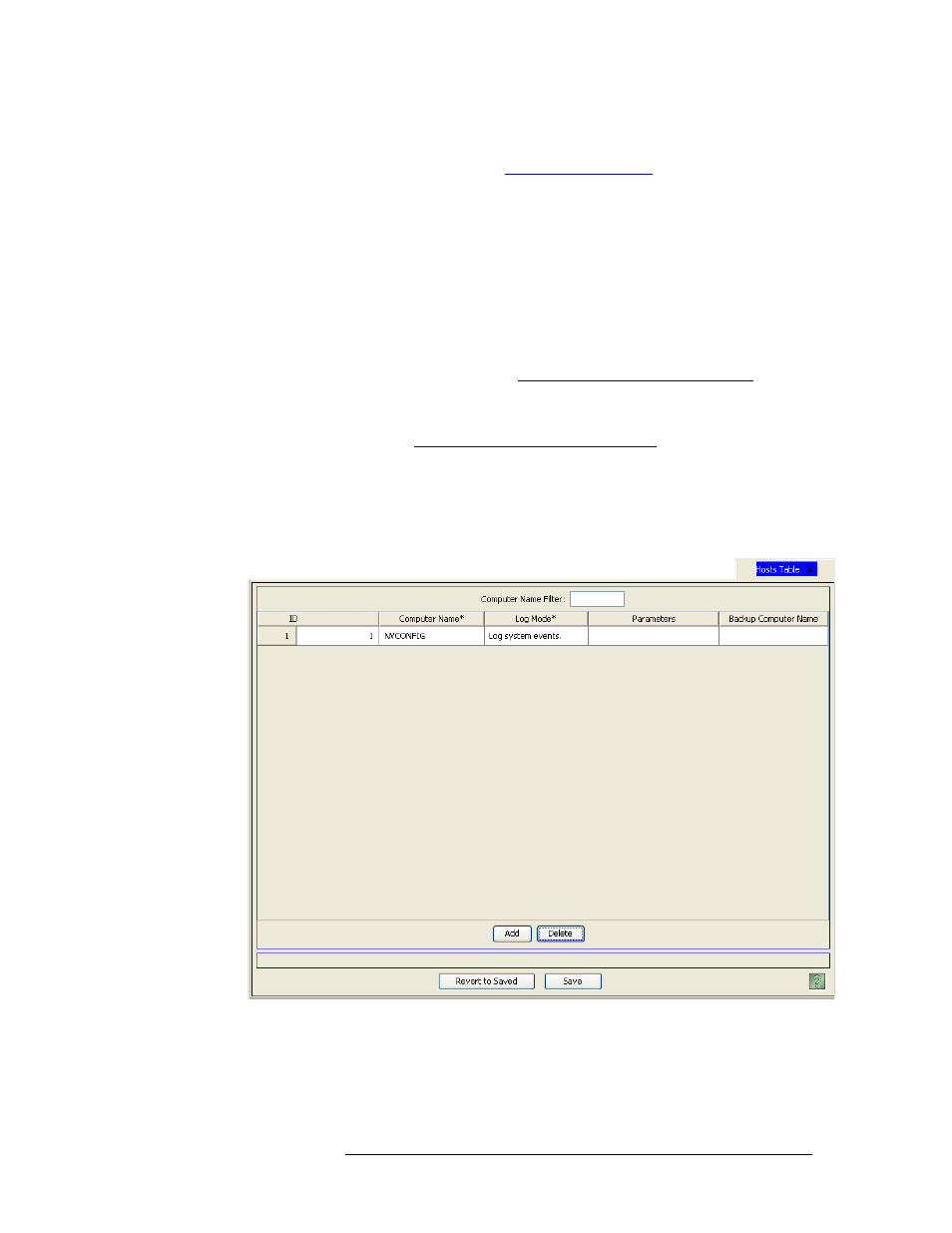Adding a host, How to add a host, 3 click add. a blank row appears – Grass Valley NV9000-SE v.3.0 User Manual
Page 63: System management

NV9000-SE Utilities • User’s Guide
43
5. System Management
Managing Host Computers
In addition to displaying in the ‘Hosts’ table, the host is also listed in the ‘Routers’ table for selec-
tion as the host computer for the router. (See
Adding a Host
A host can be added to the NV9000-SE system at any time. Hosts are added using the ‘Hosts’ table
accessed through the ‘Views’ pane. In general, there is one primary host, by default named
NVCONFIG. An optional backup host can be selected, by default named NVCONFIG2.
NV9000-SE saves all configuration changes to the database. Once changes are saved, there is no
“undo” function; the configuration is permanently altered. To implement saved configuration
changes, the changes must be written to the system controller for dispersal to connected routers.
For information on implementing changes, see
Implementing Configuration Changes
How to Add a Host
1 Launch NV9000-SE. (See
Launching and Exiting the Application
2 From the Navigation area, select the ‘Views’ pane and then ‘Hosts’. The ‘Hosts’ table appears,
as shown in Figure 5-4.
All hosts currently defined in the system are listed. To narrow the list, enter the first characters
of the host’s name in the ‘Computer Name Filter’ field. The list is automatically reduced to dis-
play only hosts matching that character string.
Figure 5-4. Hosts Table
Asterisks denote required fields.
3 Click
Add
. A blank row appears.
4 In the blank row, click in the ‘Computer Name’ column to activate it and enter a name for the
new host or accept the default name ‘NVCONFIG’.